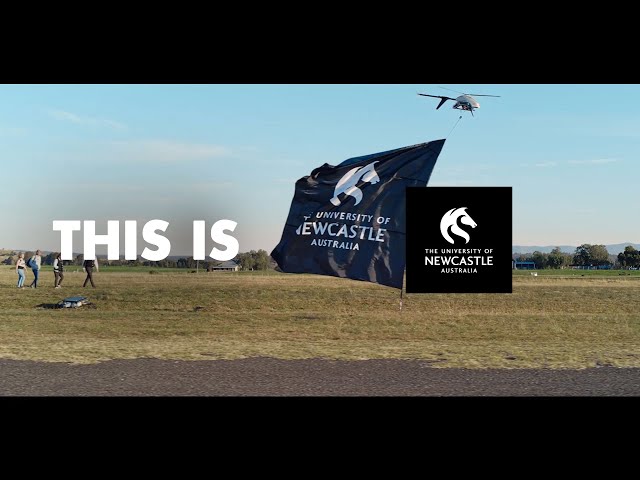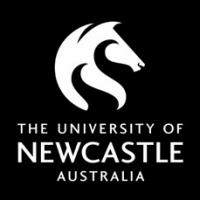Master of Philosophy (Music)
Music
Why a PhD or Research Masters in Music at Newcastle?
PhD and Research Masters students will benefit from the University of Newcastle's vibrant and diverse music research culture. UON accommodates the study of traditional and contemporary music making practices in a stimulating intellectual environment.
Areas of research include music composition, instrumental/vocal performance, technology and production, pedagogy, music culture and creative practices from the broader creative industries.
Our supervision expertise includes specialists in early music, world music, endangered music languages and, notably, Aboriginal and Torres Strait Islander music.
Newcastle has affiliations with international bodies such as Ars Electronica (Austria), which provide collaborative opportunities in a global context.
Research groups, such as Collaborative Environments for Creative Arts Research (CeCAR), and our Creative Industries Research and Innovation Cluster (CIRIC) bring together national and international researchers in the creative arts, humanities, sciences, health and social sciences with external collaborators in the community, industry, other universities and institutes.
UON is home to Newcastle Conservatorium. Within this highly creative space, graduate research students benefit from our specialised state-of-the-art facilities. Our creative production laboratory offers 27 individual workstations each equipped with Apple computers, Didgidesign MBox, Roland MIDI keyboards and headphones. 'The Con' also boasts state-of-the-art recording studios and the Harold Lobb Concert Hall, which is widely regarded as one of the finest acoustic venues in Australia.
Collaboration with other discipline areas is encouraged and assists in broadening the impact and scope of research undertaken. Areas of intersection include the fields of health, education, philosophy and computer science in addition to allied areas of the creative arts.
What you can research
Proposals for Masters and PhD projects are encouraged across all areas of music and its related fields, including:
- Interdisciplinary projects
- Composition
- Interactive technologies
- Music and image
- Sonic arts
- Indigenous music
Research methodologies
Music research at Newcastle has a strong reputation for practice-led research. Depending on the nature of enquiry a range of qualitative and quantitative methods may be employed specific to the topic being researched
Intakes
- June
- Jan
Application Processing Time in Days: 21
Minimum English Language Requirements
| English Level Description | IELTS (1.0 -9.0) | TOEFL IBT (0-120) | TOEFL CBT (0-300) | PTE (10-90) | |
|---|---|---|---|---|---|
| Expert | 9 | 120 | 297-300 | 86-90 | |
| Very Good | 8.5 | 115-119 | 280-293 | 83-86 | |
| Very Good | 8 | 110-114 | 270-280 | 79-83 | |
| Good | 7.5 | 102-109 | 253-267 | 73-79 | |
| Good | 7 | 94-101 | 240-253 | 65-73 | |
| Competent | 6.5 | 79-93 | 213-233 | 58-65 | |
| Competent | 6 | 60-78 | 170-210 | 50-58 | |
| Modest | 5.5 | 46-59 | 133-210 | 43-50 | |
| Modest | 5 | 35-45 | 107-133 | 36-43 | |
| Limited | 4 | 32-34 | 97-103 | 30-36 | |
| Extremely Limited | < 4 | < 31 | < 93 | < 30 |
PSW Opportunity
- 3 Years
Admission Requirement / Eligibility Criteria
SECTION 17 - ADMISSION - REQUIREMENTS
(1)To be considered for admission to the University, Higher Degree by Research applicants will be required to:
have met the relevant English language proficiency requirements as described in the English Proficiency Policy.
have satisfied the minimum academic requirements described in the relevant Award and Program Schedules;
have met any other additional admission requirements that may be prescribed by the Deputy Vice-Chancellor (Research and Innovation);
be a minimum of 16 years of age at 1 March of the year of admission. Applicants under the age of 16 years may apply directly to the Vice-Chancellor for consideration.
(2) The Assistant Dean (Research Training) is authorised to prescribe additional admission requirements when considering an admission to candidature. This may include a requirement for the applicant to undertake an examination(s) or carry out such work as prescribed.
(3) The Assistant Dean (Research Training) is authorised to refuse admission to candidature when appropriate supervision and resources are not available. Whether appropriate supervision and resources are available will be determined by the Assistant Dean (Research Training) on recommendation from the School.
For More Information Please Connect To Our PSA Counselor.
- Course Code: 027418G
- Course Type: Full Time
- Course Level: Masters/PG Degree
- Duration: 02 Year
-
Total Tuition Fee:
73490 AUD
Annual Cost of Living: 24505 AUD
Application Fee: N/A
Similar Programs
- Master of Philosophy (Natural History Illustration) at University of Newcastle
- Master of Philosophy (Physical Geography) at University of Newcastle
- Master of Philosophy (Human Geography) at University of Newcastle
- Master of Philosophy (Fine Art) at University of Newcastle
- Master of Philosophy (Drama) at University of Newcastle
- Master of Philosophy (Design) at University of Newcastle

